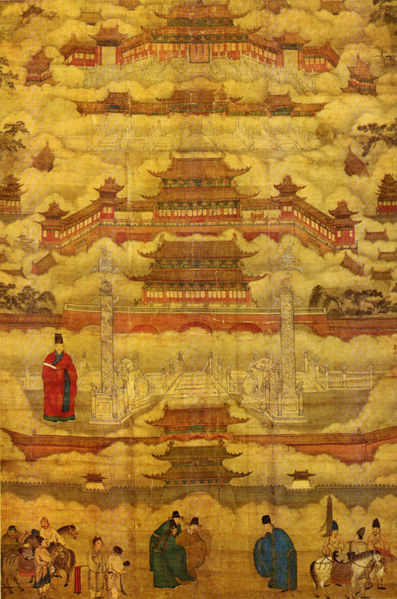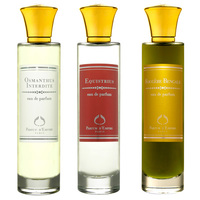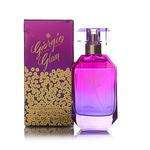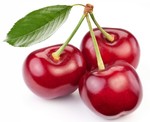Osmanthus Interdite by Parfum d'Empire - New Imperial Trilogy, Part I {Perfume Short (Review)} {New Perfume}

Osmanthus Interdite (lit. Forbidden Osmanthus) by Parfum d'Empire makes a well-known cultural reference to the prevalence and appreciation of the scent of osmanthus flower (Gui Hua) in Chinese culture notably through tea consumption, as well as to the seat of power of the Chinese emperors of the Ming and Qing dynasties, the Forbidden City.

Marc-Antoine Corticchiato the founder and nose behind the perfumes of Parfum d'Empire uses the world history of empires to illustrate the point that raw materials used in perfumery were the objects of transactions and exchanges over the continents put in communication by deeds of war and conquest. The osmanthus flower in this case however is native to China.......


An interesting article in the latest GCI Magazine, "Sustainable Scents", explains how this material is sourced. According to Bernard Toulemonde, general manager of IFF "Osmanthus is not extracted from the fresh flower. The flowers are left in salted water for two to five months. The flower is fermented." And in the same article perfumer Sophie Labbé says that she loves the new osmanthus from China because it is fruity, not leathery.
In olfactory terms Omanthus Interdite is a floral leather and therefore more of a leathery osmanthus perfume with fruity and fresh tea accents, mingling the scents of osmanthus and leather with some soft sweetish amber-y facets suggesting the golden glow of tea. Anyone who chews on jasmine-scented green tea leaves can also notice that they exude a leathery smell, which motivates the leather association even more. Yet the jus is also made edgier and more abstract by the addition of rawer, slightly metallic and ozonic notes as well as green ones suggesting unripe fruit. There is a little bit of the salted and preserved aspect too. Parfum d'Empire makes a telling reference to the "Red Capitalists" or new Chinese entrepreneurs. We could almost swear the perfume smells of a "new building" smell. It transports us without resistance to modern Beijing where the tradition-laden scents of osmanthus and jasmine teas seem to escape from a tea house opening onto a street to mingle with that of fresh cement and sweat (understated and rather clean).
The perfume has a non dramatic development and is fairly linear in keeping with a certain type of modernist signature. The apricot-y facets of osmanthus are quite noticeable. Fruits and flowers respond to each others, even suggesting the scents of Japanese preserved plums and Mediterranean green olives, all leaving their intermingling fragrant trail on a soft leather skin. A little ensuing sharpness rebukes too much indulgence taken in the appreciation of pretty, aesthetically pleasing fruity and floral notes and calls the mind's attention to a sense of raw youth and newness and by extension to the noise of a bustling Beijing street corner. The dry-down is very pretty, diffusive, and tenacious and seems to be ready to be reactivated by water rather than extinguished by it. The old and the new coexist as always in China ensuring its persistence.
Osmanthus Interdite is the lightest of the three latest creations by Parfum d'Empire, followed in incremental strength by Equistrius and then Fougère Bengale. All three evoke very different atmospheres and locales while presenting the same uncluttered, economical signature, which despite their historical symbolism give them a contemporary feel. Having appreciated recently Serge Lutens Sarrasins and Tom Ford Black Orchid Voile de Fleur which seem to signal the partial return of the "big floral", it is all the more of a contrast to experience Osmanthus Interdite afterwards. Its style is at the opposite end of the more baroque excessive compositions mentioned above. It is on the contrary minimalist. The analogy that comes to mind immediately is an opposition, which we have experienced vividly in the past, between the baroque Latin American novel and the French Nouveau Roman. Parfum d'Empire tells us in a few touches and through the medium of a very slim condensed novel its interpretation of a page of Chinese history at the dawn of a new age in the early 21st century.
Notes are: osmanthus, rose, Sambac jasmine, green Chinese tea, musks, and leather.
An interview with Marc-Antoine Corticchiato is viewable on the Parfum d'Empire website.
(Photos from Wikipedia and China Daily)









